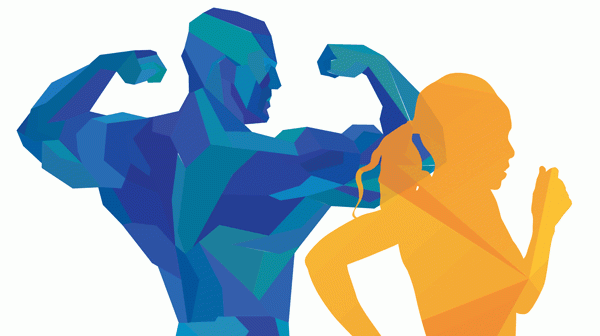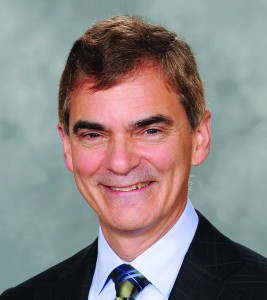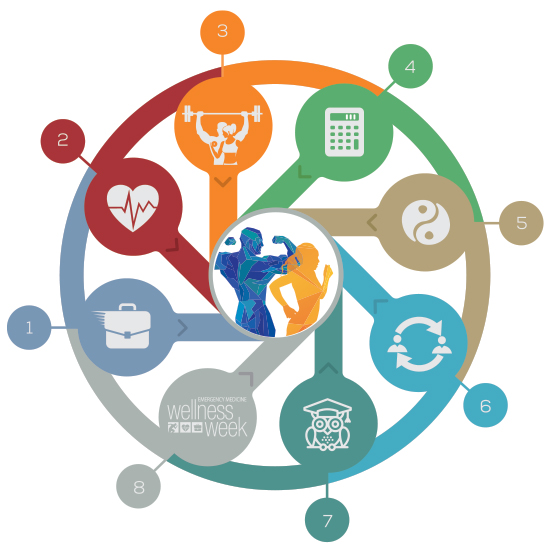
In the early seasons of the TV show ER, Dr. Peter Benton is seen in the lead-in video doing a fist pump after he began an emergency surgery on his own. He had come of age.
I saw that on TV, and I got jealous because I asked myself how often, at the end of my day as I was leaving the emergency department, did I make that move, did I feel and say, “Yes, today was why I became an emergency physician.” More often, my expression was one of relief, “Thank goodness that shift is over.” I started thinking that if 75 percent of the time I did not feel fulfilled and thankful for my day, something was wrong.
In recent published studies, emergency physicians outpace all other physicians in the rate of burnout.1,2 We practice medicine in a highly unpredictable environment with patients and families who did not expect to need our services and who themselves are placed in a bewildering, highly stressful environment. No wonder emergency physicians have difficulty handling all that comes our way.
ACEP is the first national medical specialty to focus on the well-being of its members by creating an Emergency Medicine Wellness Week. We hope to do this annually as a way to remind ourselves that there are steps we can take to remain healthy and connected to what is important. I invite you to participate and lead ACEP in becoming a trailblazer in the house of medicine in preventing burnout, dealing with it when it occurs, and promoting well-being among ourselves and our colleagues.
 Dr. Kaplan is President of ACEP, director of the patient experience for CEP America in Emeryville, California, and a practicing clinician in the emergency department at Marin General Hospital in Greenbrae, California.
Dr. Kaplan is President of ACEP, director of the patient experience for CEP America in Emeryville, California, and a practicing clinician in the emergency department at Marin General Hospital in Greenbrae, California.
ACEP views wellness as so critical to the success of an emergency physician that Emergency Medicine Wellness Week 2016, sponsored by ACEP, will take place Jan. 24–30, 2016. (Learn more about Emergency Medicine Wellness Week Activities.)
As human beings and emergency physicians, we all hope to be well, but wellness is more than just the absence of sickness. Many people and organizations have attempted to define wellness more precisely. The World Health Organization has distilled wellness to “a state of complete physical, mental, and social well-being.”3 The National Wellness Institute sees wellness as an evolving process through which people achieve their full potential.4
We can think of wellness as multidimensional with many spokes. Each spoke is critical to maintaining balance and achieving wellness. By looking at wellness this way, we can see how these elements are interconnected and contribute to how we live. However, emergency physicians may choose to prioritize these spokes in different ways.

Image Credit: ILLUSTRATION/PAUL JUESTRICH; PHOTOs shutterstock.com
Each spoke is critical to maintaining balance and achieving wellness.
The Occupational Spoke
1 Are you satisfied with emergency medicine and the job you do in your own department? Remember why you chose emergency medicine as your career. There was something very compelling about becoming an emergency physician. Can you recall what that was? Your aim is to enrich your life through your work in emergency medicine.
The Emotional Spoke
2 Emergency medicine is fast-paced and stressful. As emergency physicians, we have to acknowledge what we are feeling rather than deny our emotions. We may be annoyed with consultants or difficult patients, but we have the power to choose how we will behave and manage these feelings. Being optimistic and maintaining satisfying relationships with others are key to wellness.
The Physical Spoke
3 Exercising enough, eating well, getting adequate sleep, and paying attention to the signs of illness and getting treatment when needed all play a big role in physical wellness. Emergency physicians who are in good shape will reap the psychological benefits of greater self-esteem and self-control.
The Financial Spoke
4 Being financially secure is a key component to your effectiveness as an emergency physician. Part of financial wellness is to develop a plan by establishing goals such as providing for your family, paying your monthly bills, planning for your children’s education, and creating a nest egg that provides for a comfortable retirement and your future.
The Spiritual Spoke
5 What gives you meaning and purpose in emergency medicine? Is it the art of helping and healing? The spiritual dimension will be characterized by times of peaceful harmony interspersed with rocky times of disappointment, doubt, and fear. In emergency medicine, every day we have these experiences that cause us to adapt and bring meaning to our existence.
The Social Spoke
6 How are you relating to others in the emergency department and in your life outside of work? Developing effective relationships with colleagues, patients, friends, and our families indicates social wellness.
The Intellectual Spoke
7 As our specialty changes and evolves, having an open mind in emergency medicine is critical. Sharing what you know with others in the emergency department can be stimulating and serve as a way to challenge yourself.
Take Part in Wellness Week
8 Developing a personal approach for wellness is valuable to every emergency physician. Emergency Medicine Wellness Week 2016 will be seven days of virtual events addressing all seven spokes of wellness, with special offers designed to engage emergency department caregivers in self-care. You can choose which wellness spoke you want to focus on during the event by filling out a pledge card. Electronic articles, daily tweets, and email wellness tips will be showcased during the week.
Join everyone in ACEP for a full course of wellness that will hopefully continue long after Emergency Medicine Wellness Week 2016 is over.
Dr. Manfredi is associate clinical professor in the department of emergency medicine and a Milliken Fellowship Graduate, George Washington Institute for Spirituality & Health, at the George Washington University School of Medicine in Washington, D.C., and a member of ACEP’s Well-Being Committee.
References
- Shanafelt TD, Boone S, Tan L, et al. Burnout and satisfaction with work-life balance among US physicians relative to the general US population. Arch Intern Med. 2012;172:1377-1385.
- Shanafelt TD, Hasan O, Dyrbye LN, et al. Changes in burnout and satisfaction with work-life balance in physicians and the general US working population between 2011 and 2014. Mayo Clin Proc. 2015;90:1600-1613.
- What is wellness? University of California, Davis website. Accessed Dec. 11, 2015.
- The six dimensions of wellness model. National Wellness Institute website. Accessed Dec. 11, 2015.


 Dr. Kaplan is President of ACEP, director of the patient experience for CEP America in Emeryville, California, and a practicing clinician in the emergency department at Marin General Hospital in Greenbrae, California.
Dr. Kaplan is President of ACEP, director of the patient experience for CEP America in Emeryville, California, and a practicing clinician in the emergency department at Marin General Hospital in Greenbrae, California.




One Response to “Emergency Medicine Wellness Week 2016 to Focus on Self-Care for Emergency Physicians”
January 19, 2016
David L Meyers, MD FACEPVery good piece. I especially like the wheel model. Thanks.